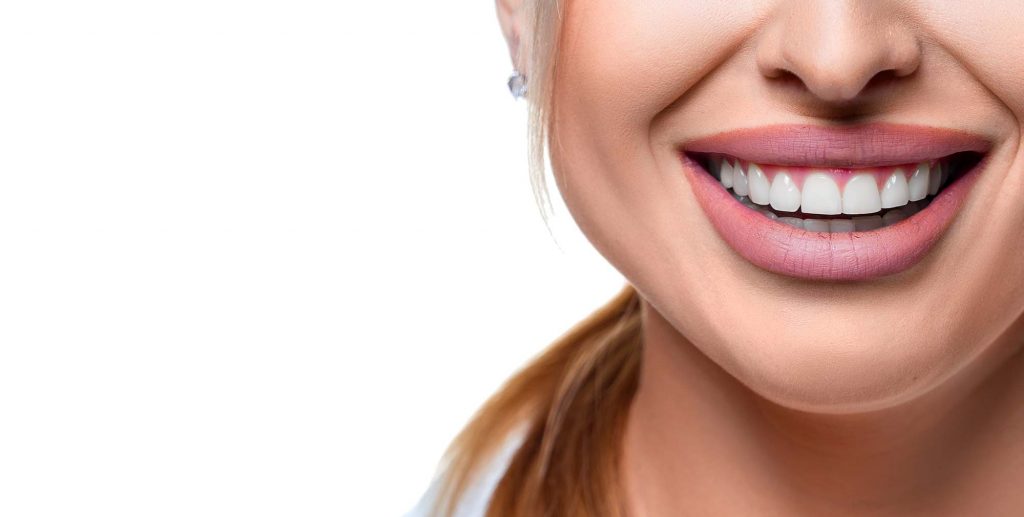While it’s important to receive regular cleanings and check-ups from a dentist, there are also ways you can take care of dental health at home. Almost everyone knows to brush and floss their teeth, but what about these lesser known tips? Here are 7 daily habits that boost dental health without taking up your time or breaking the bank.
1. Brush Properly
This first habit is a simple one and also one many people break. A majority of the population does not spend the right amount of time brushing their teeth, which allows plaque and food particles to remain behind. To get the most out of your brushing sessions, move the toothbrush in small, circular motions and apply medium pressure.
Brushing needs to be done for 2 minutes twice a day. To reach this goal, sing the alphabet song in your head twice during each session. Only spit and rinse once you have reached “Z” twice.
At the same time, make sure to use a soft bristled toothbrush. The softer bristles are less damaging to your dental enamel and will eliminate food particles without causing damage. They will also not hurt your gums, reducing the chances of recession and bleeding.
2. Brush Your Tongue
Plaque is a film of bacteria which coats the inside of the mouth during regular activities like eating and drinking. While most people are great at eliminating it from their teeth and gums, plaque can also build up on the surface of the tongue. It most cases, it looks like a white film that discolors the muscle.
To remove plaque, use your brush and carefully scrub the surface of your tongue. You can use your bristles or the back of your toothbrush. Just avoid pressing too hard or going too far back in the mouth, because you could trigger the gag reflex.
If you are continuing to have a problem with plaque building up, consider adjusting your diet to include fewer sugary foods and beverages. Instead, consume fresh fruits and vegetables that leave less plaque and are healthier in the long run.
3. Floss Both Sides of Your Teeth
Proper flossing means you need to reach all of your teeth and also address both sides. On average, people who floss will only pull the string to the right or to the left. This results in them missing the side of one of their teeth. To improve your oral health, make sure you are pulling the floss to the right and left so the entire mouth is clean and healthy.
4. Use Fluoridated Care Products
Fluoride has received a mixed reputation online. Bloggers and others have started to claim the fluoride used in oral hygiene products has negative effects on health, but this is not true. Instead, fluoride is a natural part of the human diet responsible for identifying microscopic patches of decay in the dental enamel and helping the surface repair itself.
To improve your dental health, invest in a fluoridated toothpaste and mouthwash. Brush for two minutes like normal so the fluoride has time to penetrate the enamel and start repairs. Then, rinse with a mouthwash. Your smile will be healthier and brighter.
As a note, children under six should not use fluoridated products as it can cause discoloration. After six, it is safe to use a dentist approved children’s toothpaste.
5. Drink Water
Water is essential for health, but many people avoid drinking plain water in favor of soda, coffee, tea, juice, and carbonated beverages. While these drinks might taste delicious, they can have lasting effects on your smile. For example, coffee and tea are well-known for causing discoloration. Soda and juice, meanwhile, contain unwanted sugars and acids which damage the dental enamel.
To improve your health, drink plain water as often as possible, especially with meals. The water will rinse away food particles and debris and will also hydrate you and your muscles. Water also does not stain or degrade the teeth, so you don’t have to worry about the negative side effects common with other beverages.
On average, people are encouraged to drink 8 cups of plain water a day.
6. Eat Crunchy Fruits and Vegetables
Did you know that eating hard materials is actually necessary to keep your mouth healthy and your jaws strong? A common problem with the modern diet is it not only focuses on softer foods, but people are also less likely to reach for fresh, unprocessed fruits and vegetables.
Unprocessed fruits and vegetables can help improve not only dental health, but your overall health as well. The vitamins and nutrients can benefit your body, and the pressure and chewing required by eating will keep you jaw and oral muscles strong.
Even young children can benefit from having cut up pieces of vegetables like carrots and broccoli to start strengthening their mouths.
7. Wait Before You Brush
One of the worst things you can do to your teeth is to brush them right after eating or drinking acidic, sugary products. When you consume these foods and beverages, they leave some of their acid and sugar on the surface of the teeth. When you brush right after, your toothbrush actually spreads the acid and sugar around. Since the enamel is softened by these substances, you are causing irritation to weakened enamel and can actually remove pieces from your smile.
Instead of brushing your teeth right away, wait at least 30 minutes. This gives your mouth time to remove the acid and sugar, and your enamel will have hardened and strengthened back to normal.
Conclusion
Following these 7 daily habits can help you avoid needing in-depth orthodontics treatment down the road. For many adults, orthodontics treatment is necessary because the teeth have been damaged, broken, or shifted from unhealthy habits.
If you do find yourself in need of more advanced care, contact Orthodontics Limited, a Philadelphia orthodontist who can help repair your teeth in the face of damage. Not only can they help you recover, but they can also provide educational materials on improving your daily habits.




